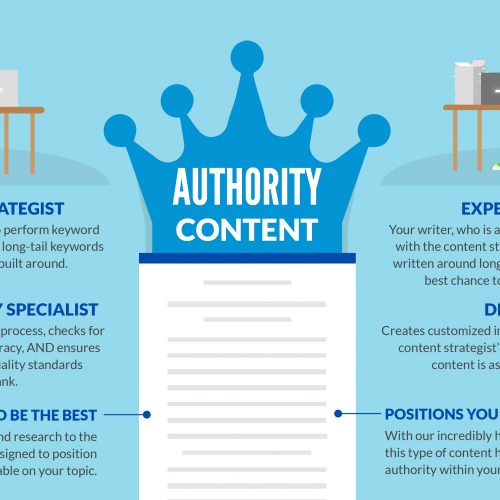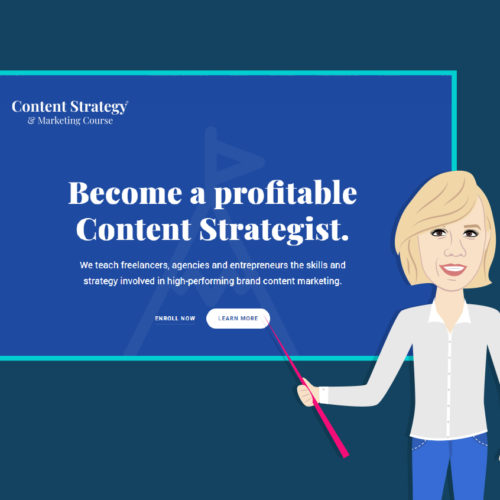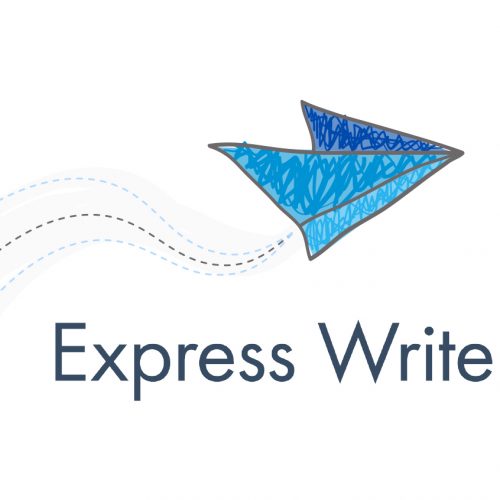General, Expert, Authority: What Differentiates the Content Levels at Express Writers? (Infographic)
At Express Writers, we’re a tight-knit team of content creators that pride ourselves on serving our clients with the best copy on the web. Since I founded the company in 2011, we’ve served over 5,000 clients around the globe. Watch our video story. Part of our structure in customizing our content and matching up our writers to our clients for successful results, has been in serving our clients with three specific levels. Our three individual content levels are suited to every kind of budget, expertise level needed, and consistent brand positioning. To explain our levels better, we created a visual infographic to represent what each of these levels look like. Enjoy! And be sure to scroll down to the content below the infographic to see examples of each content type, written by our creators. [bctt tweet=”See the three content levels at @ExpWriters #infographic” via=”no”] General, Expert, Authority: What Differentiates the Content Levels at Express Writers? (Infographic) Explaining the Three Content Levels at Express Writers General Copy: The Lowdown See an example of General Copy. Writer: Your writer passed our hiring tests. Only 2% of applicants do, so they’ve got writing chops. They’re not, however, an expert on the topic and will instead rely on their research and writing skills. Content Quality Specialist: Your editor follows our unique 5-point quality check to eliminate grammar and syntax errors while ensuring strong word flow and proper formatting. Thorough Research: Includes statistics, quotes, and/or links that support your article topic. Benefits of General Copy SEO-Friendly: Formatted and written to be found by search engines. Created for Optimal Readability: Content is broken up with subheadings and short paragraphs to make it easy for readers to consume. Who General Content Is Perfect for: Small businesses focusing on local SEO Agencies reselling our content to small, local-focused businesses Businesses or bloggers in non-competitive niches that need content for their blog or social media pages Expert Copy: The Lowdown See an example of Expert Copy. Expert Writer: Your writer passed our tests AND has extensive experience writing about your topic. They also have a better understanding of your readers than a general writer would. And, they’re expert in the nuances of engaging writing. Many of these writers have taken advanced courses, live workshops, or coaching sessions on how to write for engagement and conversions. Content Quality Specialist: Your editor uses our 5-point quality check process AND checks for link quality and research accuracy. Extensive Research: Using their experience, your expert writer knows where to find the best resources (links, statistics, quotes, etc.) for researching your topic. Benefits of Expert Copy Made for Search Engines: Everything, from the quality of the content to the formatting and keywords used, is made for high ROI in the organic SEO rankings, targeted to the real human reader. Audience-Centric Content: Content is designed to connect and engage with your unique audience. Positions You as an Expert: After publishing several expert articles, you’ll be well-positioned to start generating organic traffic for the long term. Who Expert Content Is Perfect for Businesses or bloggers that want to begin establishing themselves as an expert in their industry Small or medium-sized businesses that want to start generating organic traffic Businesses in a niche with moderate competition that are trying to work towards becoming an authority Authority Content: The Lowdown See an example of Authority Content. This content level not only uses the highest level writer and editors in our team, but also has a specialized process, workflow and extra steps for SEO keyword discovery and special image creation. Content Strategist: Step 1 in the Authority Content workflow. Uses industry-leading tools to perform keyword research and determine which long-tail keywords your content should be built around. Authority Writer: Your writer, who is an expert on your topic, works with the content strategist to ensure content is written around long-tail keywords that have the best chance to help you rank quickly. This writer has been handpicked out of our best writers and mentored by our CEO. Content Quality Specialist: Uses the 5-point quality check process, checks for link quality and research accuracy, AND ensures your content passes the quality standards necessary to rank. Designer: Creates customized images, based on the writer and content strategist’s suggestions, to ensure the content is as engaging as possible. Benefits of Authority Content Designed to Be the Best: Everything, from the images and research to the link quality and formatting, is designed to position your content as the BEST available on your topic. Positions You as an Authority: With our incredibly high standards, the quality of this type of content helps position you as an authority within your niche. Customized, Engaging Images: Content with images produces 650% higher engagement rates. With the customized images our designer creates, that number could be even higher. First Page Focus: The goal of this content is to get you to the first page of search engines for the long-tail keyword/s that we’re targeting. Who Authority Content Is Perfect For Businesses that are looking for content that “wows” and engages their readers Businesses in competitive niches that want to get to the top of the search engines Businesses or bloggers looking to establish themselves as an authority in their industry Interested in Finding Your Content Level Match? Talk to Our Team! Content creation tops the list as the most effective tactic for SEO. (Marketing Sherpa) But if you’re not investing in excellent content for your site, and publishing it on a consistent schedule, the chances of SEO rankings, more inbound leads, and sales drop. Get off the ground and start flying by investing in custom content for you and your brand! Want to discover which of our content types is right for you? Talk to us today! We’d love to help support your content creation. Head on over the contact page and book a call with one of our Specialists, or go straight to the Content Shop and check out our three levels: General Content Expert Copy Authority Content









